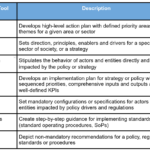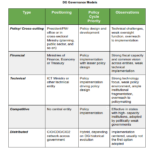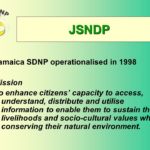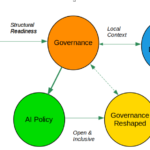After several attempts and 10 weeks in between, I finally visited GovLab which is hosted by NYU. The fact that I had personally met one of the GovLab co-founders, Stefaan Verhulst, did help a bit. Stefaan was previously with the Markle Foundation and we meet over 10 years ago when UNDP and Markle partnered to support the Digital Opportunity Initiative, DOI. The partnership lasted for a couple of years and we did work together in a couple of countries, Bolivia and Mozambique.
GovLab works in three core areas: 1. Smarter Governance; 2. Open Data/Open Government; and 3. Shared Governance. GovLab defines governance as the way in which institutions compile information and make decisions to solve collective problems. Note the emphasis on information (actually, most governments do not systematically do this, especially in developing countries).
Smarter governance is focused on institutions and the way they can use expertise from distributed networks to be more effective and responsive. This is clearly related to crowdsourcing (in a strategic fashion), participation of people in decision-making processes and governments being able to know the demand before they commit any public resources to specific areas – which is, I am happy to report, what UNDP has been advocating for the last few years.
Open data does not require additional explanations here. Suffice to say that for GovLab the real value of open data does not come from the potential governance benefits but rather from its economic impact. The GovLab web site for example prominently highlights the 3 billion trillion USD revenues that open data can bring to the globe from a report done by McKinsey (see here) in 2011. I read the report and I am still not sure how they came up with such number. The question of WHO is going to capture such revenues is not really addressed, especially if we think about developing countries.
Finally, shared governance is related to Internet Governance and the emerging “multi-stakeholder” mechanisms that has been developing for the last 9 years or so, right after the end of WSIS 2005. Governance without governments with a strong private sector lead is part of the equation. GovLab is leading one of the 5 panels that ICANN launched last year -recall that I am a member of the panel on Public Responsibility. For a recent critique of such mode see this blog. Are we in the age if the privatization of governance?
I told Stefaan that we have lost of interest in 1 and part of 2. He invited me to a meeting that they will be hosting with the US Mission to the UN on transparency and open data. The meeting will take place on 2 April.
Cheers, Raúl





